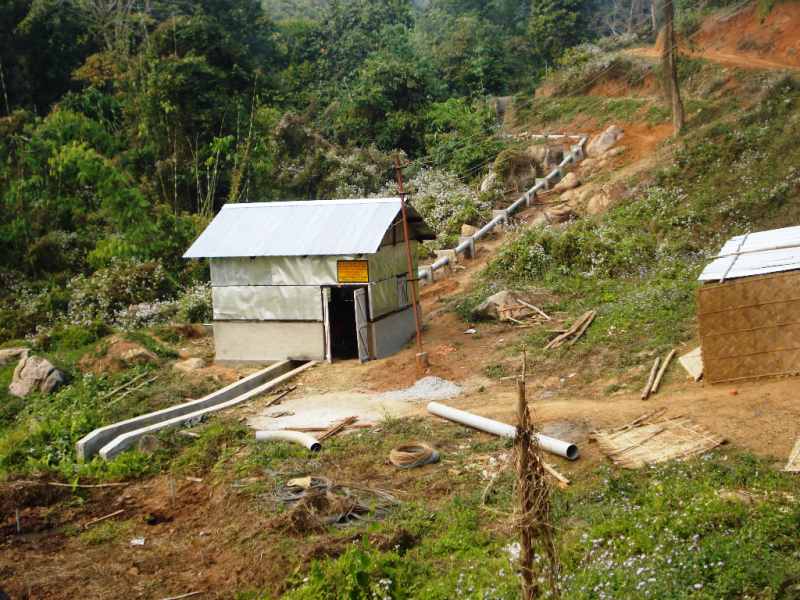The project aims to integrate an existing micro hydro power unit into the national grid to prevent it from becoming non-operational and to demonstrate the potential of a grid-connected micro hydro solar hybrid system. Solar power will ensure the reliability of export of power to the grid during dry season while micro hydro becomes partly functional.
 India’s north eastern region has the largest share of the country’s CO2 absorption sink. It also has a huge potential for clean micro hydro power. Various attempts have been made to establish micro Hydel based renewable energy projects in the region, but most of these have been abandoned due to availability of conventional grid at later stage.. The Ashden India Renewable Energy Collective in association with aims to optimise resource use by tapping the full potential of solar and hydro power. The project site is the Upper Killing village in the Kamrup District of Assam, India. A micro hydro plant is already in existence and has been operated by the local tribal community since 2007, but may soon become defunct as a result of the village’s connection to the national grid in 2014.
The specific objectives of the project are:
India’s north eastern region has the largest share of the country’s CO2 absorption sink. It also has a huge potential for clean micro hydro power. Various attempts have been made to establish micro Hydel based renewable energy projects in the region, but most of these have been abandoned due to availability of conventional grid at later stage.. The Ashden India Renewable Energy Collective in association with aims to optimise resource use by tapping the full potential of solar and hydro power. The project site is the Upper Killing village in the Kamrup District of Assam, India. A micro hydro plant is already in existence and has been operated by the local tribal community since 2007, but may soon become defunct as a result of the village’s connection to the national grid in 2014.
The specific objectives of the project are:
- To connect the micro hydro plant to the grid to keep it operational
- To inject the energy produced into the grid through a power purchase agreement
- To install a 5 KW solar photovoltaic plant near the existing plant, thereby setting up a pilot project for a solar hydro hybrid system
- To establish training and capacity building, especially for the local communities
- To monitor the activities and develop replication plans
Projects with same technology
Community-based Water Resource Utilisation for Hydropower Generation
To develop a community-based pico-hydro power system as an alternative source of energy
Implementation of Low Head Micro Hydro to Support Clean Water Supply for a Boarding School
This project aims to install a 10 kW low-head Micro-Hydro Plant (MHP) along a riverside, generating power for a nearby school
Projects in same country
Value-addition to food crop processing: Converting banana plant-waste to cooking-fuel
To provide clean cooking fuel at village level while improving income opportunities and giving appropriate treatment to crop residues
Empowering Rural Entrepreneurs in India
The project aims to demonstrate the viability of a hybrid hydro power plant consisting of a hydrokinetic turbine and photovoltaic panels to power a local rice and flour mill, while also enhancing the population’s wellbeing (e.g. by improved lighting).